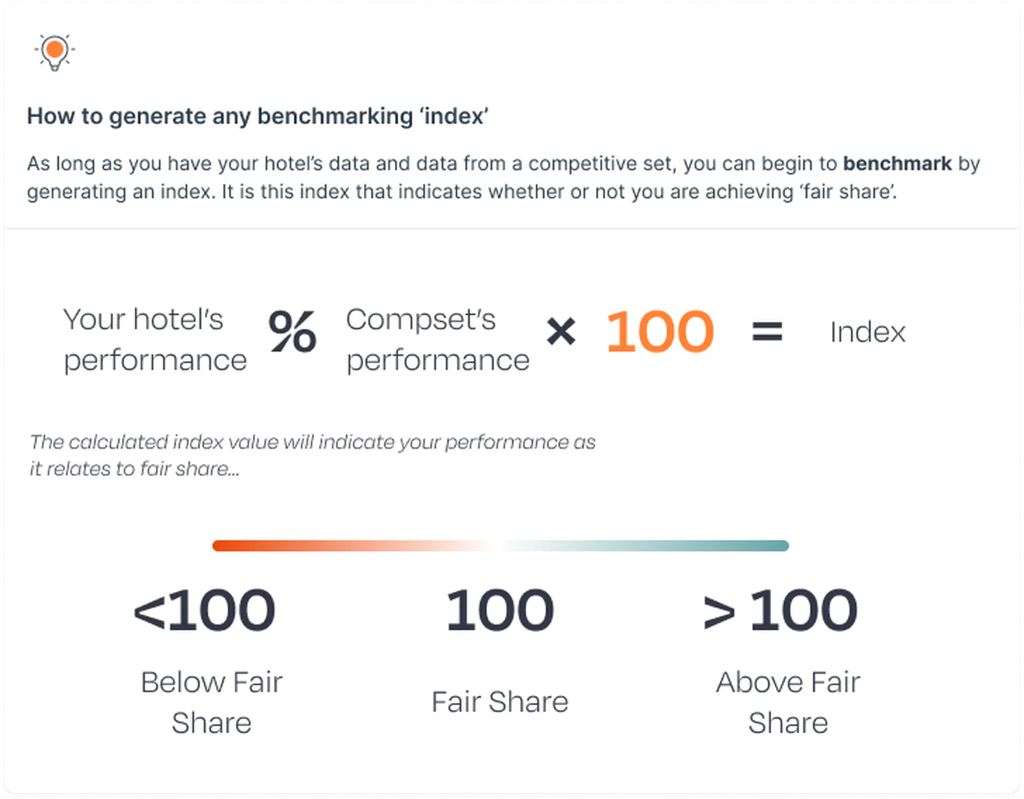
“Fair share” is the average performance of the competitive set, for any given metric. If you perform better than this average you can be said to be “above fair share”, and if you perform worse, then you are “below fair share”.
NB: This is an article from Lighthouse
Subscribe to our weekly newsletter and stay up to date
For example: last week your compset’s average occupancy was 74%, but you managed to run 80% occupancy. This means you were above fair share by a strong margin. The compset average (fair share) is itself the metric you’re comparing against.
How to calculate your hotel’s fair market share
Since revenue managers always compare themselves with competitors for a variety of metrics, it is highly beneficial to have a universal calculation, or index that can standardize, and quantify just how much one is above or below fair share.
The following equation shows how you can take any metric, for any time period and standardize your performance vs. the compset in the form of an ‘index’.
Let’s take a quick example. Let’s say last night your RevPAR was $98.14, and your compset’s RevPAR was $96.78. Using the formula shown above, we get a calculated index of 101.41. Since this number is > 100, you are above fair share! In just a bit we’ll talk more about this specific index (we actually just calculated a “RevPAR Index, or “Revenue Generation Index”)!
The chart below helps you visualize what a particular index might look like over time. Periods where the index is above 100% are those times where the hotel is outperforming the compset. This is when the hotel is said to be “above fair share”, or “stealing share” from their competitors.
The times when a hotel is underperforming their competitors are those time periods when the line falls below 100%, and the hotel is “losing share”, or “not achieving fair share”.
Why fair share matters for hotels
Understanding the concept of fair share matters because it quickly allows you to assess your performance objectively; if you’re consistently underperforming competitors then something is wrong (perhaps an inaccurate compset or sub-optimal strategy), if you’re consistently beating the compset, you’ve got a competitive edge worth continuing.
When you analyze various metrics through this ‘fair share’ framework you can begin to discover market trends, uncover strengths and weaknesses in your strategies, and make adjustments that allow you to compete more effectively. When you start to analyze data in this way, and investigate the why behind these outcomes, you begin to unlock something even more powerful. This form of analysis is called benchmarking.
Other important metrics for benchmarking hotel performance
Now that you have a better understanding of what fair share is and why it’s important, let’s build on this knowledge and learn the metrics that are used most commonly in hotel benchmarking.






